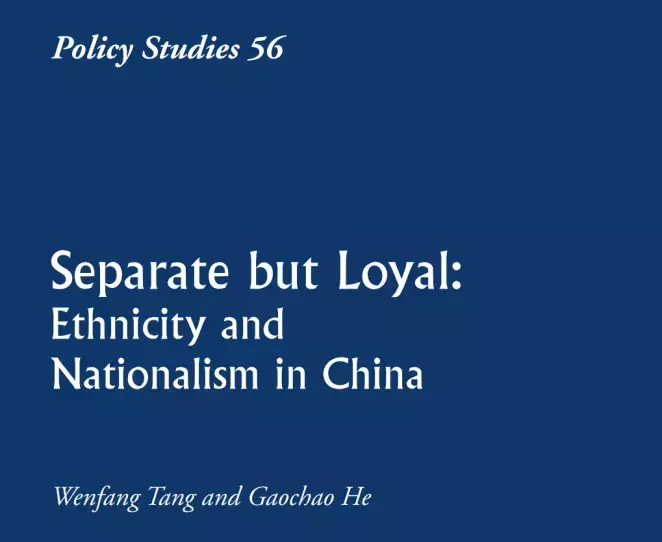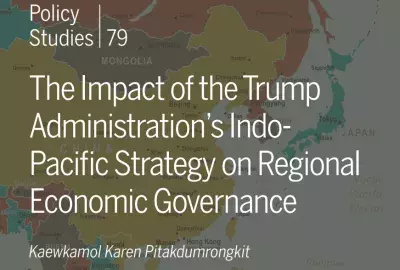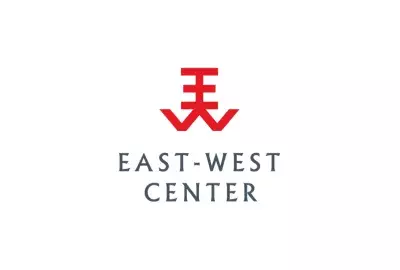Error message

Hard copies are available from Amazon.com. In Asia, hard copies are available from the Institute of Southeast Asian Studies (ISEAS).
Beijing has faced the challenge of granting autonomy to ethnic minorities but maintaining their loyalty to the Chinese state. This paper tackles complex issues of ethnic identity and nationalism among the most politically sensitive groups in China: the Uyghurs, Tibetans, Mongols, Huis, and Kazaks. Specifically, it draws on original research conducted by the authors, the 2006–2007 Chinese Ethnicity Surveys, to explore the extent to which ethnic minorities are sinicized and the meaning of being Chinese.
With an analysis of current arguments about whether national identity in contemporary China is based on a Han-dominant Confucian tradition or a multiethnic society that originated during the Qing empire, Separate but Loyal examines ethnic identity through the lens of ethnic-language learning, religious practices, and interethnic marriage. It also provides an illuminating comparison of perceptions of group identity and national identity in China with those in the United States and Russia.
The survey points to some surprising findings, including the fact that ethnic minorities in China showed higher levels of both ethnic identity and national identity than U.S. and Russian respondents. These findings seem to support the argument that national identity is based on the multiethnic Chinese state, and they offer a rare empirical perspective on how the government can maintain the balance needed to preserve its legitimacy.
About the Authors
Wenfang Tang is professor of political science and Stanley and Hua Hsia Chair of Chinese Culture and Institutions at the University of Iowa. His current research focuses on public opinion and political change in contemporary China.
Gaochao He is professor of political science, School of Government, Sun Yat-Sen University. His main research interests include politics of production, rural democracy and governance, and politics of social-economic transformation.

Hard copies are available from Amazon.com. In Asia, hard copies are available from the Institute of Southeast Asian Studies (ISEAS).
Beijing has faced the challenge of granting autonomy to ethnic minorities but maintaining their loyalty to the Chinese state. This paper tackles complex issues of ethnic identity and nationalism among the most politically sensitive groups in China: the Uyghurs, Tibetans, Mongols, Huis, and Kazaks. Specifically, it draws on original research conducted by the authors, the 2006–2007 Chinese Ethnicity Surveys, to explore the extent to which ethnic minorities are sinicized and the meaning of being Chinese.
With an analysis of current arguments about whether national identity in contemporary China is based on a Han-dominant Confucian tradition or a multiethnic society that originated during the Qing empire, Separate but Loyal examines ethnic identity through the lens of ethnic-language learning, religious practices, and interethnic marriage. It also provides an illuminating comparison of perceptions of group identity and national identity in China with those in the United States and Russia.
The survey points to some surprising findings, including the fact that ethnic minorities in China showed higher levels of both ethnic identity and national identity than U.S. and Russian respondents. These findings seem to support the argument that national identity is based on the multiethnic Chinese state, and they offer a rare empirical perspective on how the government can maintain the balance needed to preserve its legitimacy.
About the Authors
Wenfang Tang is professor of political science and Stanley and Hua Hsia Chair of Chinese Culture and Institutions at the University of Iowa. His current research focuses on public opinion and political change in contemporary China.
Gaochao He is professor of political science, School of Government, Sun Yat-Sen University. His main research interests include politics of production, rural democracy and governance, and politics of social-economic transformation.








